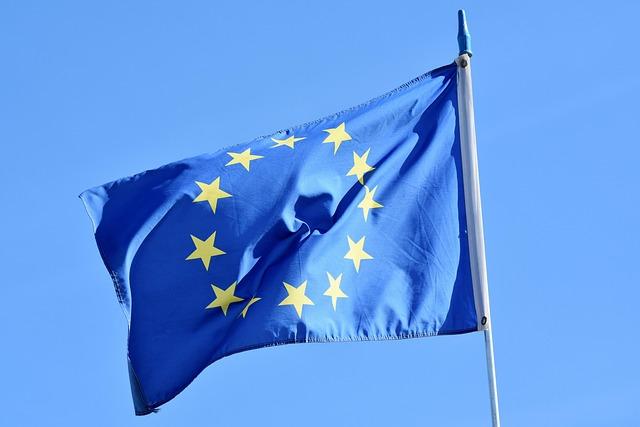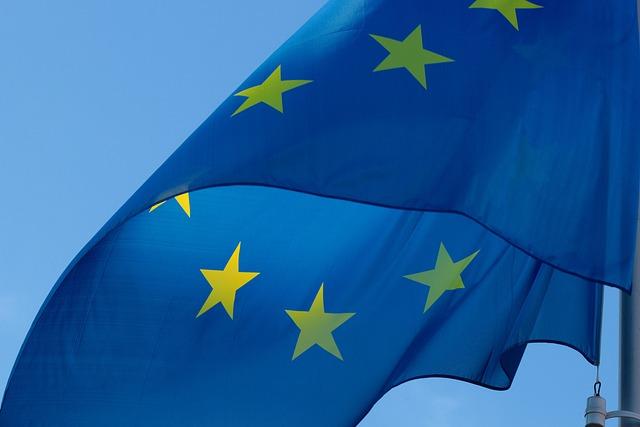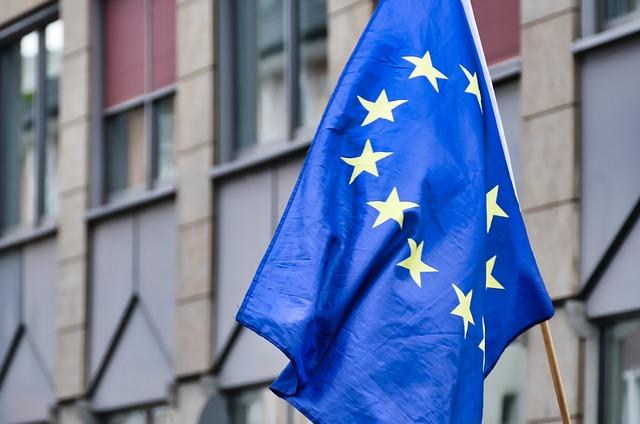Georgias Position in EU Enlargement Dynamics
Georgia’s current strikes in the direction of EU integration have raised questions relating to the broader implications for the European union’s enlargement technique. As a nation at the crossroads of europe and Asia, Georgia’s aspirations to be a part of the EU are seen not solely as a reinforcement of its pro-European stance but in addition as a check case for the EU’s willingness to adapt its insurance policies within the face of rising regional tensions. The geopolitical panorama, characterised by Russian affect in close by territories, provides a layer of urgency to Georgia’s bid, thus prompting a reevaluation of the standards and processes that sometimes govern enlargement selections. Some analysts argue that this case might set a precedent the place geopolitical issues overshadow rigorous compliance with EU requirements, main to potential dilution of the union’s foundational ideas.
This evolving situation illustrates a posh interaction between nationwide aspirations and EU dynamics. Key factors to think about embody:
Strategic Positioning: Georgia’s distinctive geographic location as a conduit between Europe and Asia makes its integration extra about regional stability than purely legislative alignment.Political Ramifications: An expedited accession course of for Georgia may encourage different non-EU states to push for comparable remedy, complicating the union’s constant coverage framework.Inside EU Dynamics: Georgia’s membership would possibly amplify present divisions inside the EU relating to enlargement, sustainability, and migration insurance policies.ConsiderationPotential ImpactGeopolitical TensionsIncreased strain on EU member states to reply to exterior threats.Customary ComplianceRisk of decreasing entry limitations,affecting high quality of membership.Regional PartnershipsPaving the approach for stronger ties with neighboring nations in search of EU alignment.

Evaluation of Georgias Current Political strikes
In a major development, Georgia’s current political maneuvers have raised eyebrows throughout Europe, particularly relating to the implications for EU enlargement. The federal government’s determination to decelerate reforms and shift focus towards nearer ties with non-EU nations suggests a strategic pivot that will prioritize nationwide pursuits over aspiring to EU integration. This shift has the potential to ascertain a difficult precedent that might embolden different candidate nations to rethink thier alignment with EU requirements, thereby complicating the enlargement course of. Political analysts level to a number of key elements driving this determination, together with:
Home Pressures: A rising sentiment among the many populace in opposition to exterior affect.Geopolitical Dynamics: The strengthening of relationships with neighboring nations resembling Russia and Turkey.Institutional Fatigue: A perceived stagnation within the EU’s decision-making and enlargement course of.
Furthermore, the implications lengthen past Georgia’s borders. The balancing act between sustaining EU ambition whereas navigating its advanced regional alliances entails a cautious recalibration of priorities.This case surfaces important discussions relating to EU cohesion and the ongoing ramifications on member states that stay steadfast of their achievement of accession standards. A doable shift noticed in public opinion signifies an important crossroads, as evidenced by the next desk summarizing the present public sentiment on EU membership in Georgia:
Public Opinion aspectSupport (%)Opposition (%)EU Membership Aspiration6228Support for Reform Implementation5535Desire for Nearer Ties with Russia4545

Potential Implications for EU Candidate International locations
The decision-making course of surrounding Georgia’s EU accession has sparked discussions about the long run trajectories of different candidate nations. This growth raises important questions relating to the standards and requirements utilized within the enlargement coverage. Candidate nations resembling Ukraine, Moldova, and the Western Balkans are now left grappling with the implications of Georgia’s experiance, notably when it comes to their very own political and financial readiness for EU membership. If the EU adopts inconsistent insurance policies, it could create a notion of preferential remedy that may undermine the credibility of growth efforts and gas discord amongst aspiring members.
Furthermore, the response from present EU member states may considerably affect the long run panorama of enlargement. Some areas of concern embody:
Elevated skepticism in the direction of the enlargement course of amongst each member and candidate nations.Potential for heightened nationalist sentiments inside candidate nations, resulting in home instability.pressure on EU sources, affecting the general integration help supplied to candidate nations.
Analyzing these variables is important for understanding how Georgia’s state of affairs may set a precedent. The EU might must reevaluate its strategy to enlargement if it goals to keep up unity, stability, and strategic coherence throughout europe.

Suggestions for Strengthening EU Cohesion
To reinforce unity and cooperation inside the European Union, a number of strategic actions ought to be prioritized. Investing in cross-border initiatives that improve connectivity and financial integration is crucial. These initiatives may embody infrastructure growth that hyperlinks underdeveloped areas, thereby selling regional equality. One other focus space needs to be the strengthening of regional insurance policies that empower native communities, permitting for tailor-made options addressing distinctive challenges. Such efforts can mitigate the disparities between member states and contribute to a extra cohesive EU.
Moreover, fostering inclusive dialog amongst member states is important to constructing consensus on enlargement insurance policies. Establishing a platform for normal exchanges involving each present and potential members can make sure that all voices are heard and valued. Moreover, implementing a clear analysis system for candidate nations, grounded in clear and goal standards, will assist preserve the integrity of the enlargement course of. This strategy wouldn’t solely navigate the complexities launched by circumstances like Georgia but in addition reinforce the EU’s dedication to its foundational ideas of democracy and the rule of legislation.

The way forward for EU Enlargement in a Altering Panorama
The shifting geopolitical panorama in Jap Europe has created a myriad of challenges and alternatives for the European Union relating to its growth coverage. Georgia’s current developments function each a beacon and a cautionary story for EU aspirations within the area. By its pursuit of nearer ties with the EU, georgia has exemplified the complexities of EU enlargement the place nationwide aspirations collide with the realities of accession standards. As perceptions surrounding enlargement evolve, the EU faces important selections influenced by elements together with:
Political Stability: The rising affect of exterior actors like Russia may destabilize aspirant nations.Rule of Legislation Points: The EU’s insistence on democratic ideas might stall potential candidates scuffling with governance reforms.public Sentiment: Rising Euroscepticism amongst EU member states raises questions in regards to the urge for food for brand spanking new members.
Furthermore, Georgia’s actions, alongside the EU’s responses, might reshape the foundational ideas of the bloc’s enlargement technique, resulting in a doable recalibration of its standards and timelines. These developments may inadvertently create a fragmented strategy to membership. Specifically, the EU should navigate the steadiness between providing incentives for reform and guaranteeing that applicant nations don’t exploit the method. Such a fragile steadiness would possibly require a reorganized framework for assessing candidate readiness, which may embody a extra tailor-made, step-by-step integration course of. The implications of this adaptive strategy might doubtlessly alter the long run of EU growth because it continues to grapple with:
Key FactorsImplications for EU ExpansionGeopolitical TensionsIncreased urgency for swift integration of secure candidatesInternal EU dynamicsPressure from member states on reassessing enlargement paceEconomic ConditionsNeed for strong financial stability amongst candidates
The Conclusion
Georgia’s current transfer to prioritize its ambitions for EU integration poses vital implications for the way forward for enlargement within the European Union. Because the nation navigates its delicate steadiness between nationwide sovereignty and regional aspirations, it units a precedent that may reshape the framework inside which the EU engages with potential member states. The potential for a precedent that prioritizes political or financial situations over broader membership standards raises questions in regards to the integrity and viability of the enlargement course of itself. Because the EU grapples with inside challenges and exterior pressures, the state of affairs in Georgia serves as a important case research that can demand cautious examination from policymakers and political analysts alike. The ramifications of this growth can be felt not simply inside Georgia, however throughout your entire European panorama, because the aspirations of countries in search of nearer ties with the EU proceed to evolve in an more and more advanced geopolitical setting.
Source link : https://europ.info/2025/03/22/georgia-2/georgia-has-set-a-precedent-that-could-undermine-eu-enlargement-al-jazeera-english/
Creator : Caleb Wilson
Publish date : 2025-03-22 08:28:00
Copyright for syndicated content material belongs to the linked Source.


